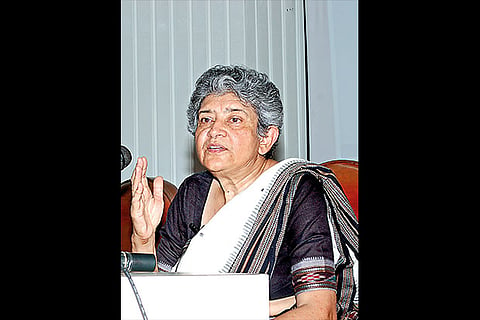

Chennai
The international seminar on Agriculture and Rural India after Economic reforms, which concluded here last evening, was organised in honour of noted economist Professor Venkatesh B Athreya by his PhD students at the MSSRF, in which several eminent economists from India and abroad came together and discussed about the post-reform scenario in India, the agrarian crisis, changes at grass root level and issues to be addressed.
A release from MSSRF said the seminar was divided into six technical sessions over the last two days and discussions ranged from growth pattern of Indian agriculture post reforms, public investment in agriculture and rural infrastructure, rural indebtedness, agricultural price, profitability and markets, gender dimensions of rural employment and wages and status of food and nutritional security in rural India.
On the issue of the agrarian crisis, Prof Narasimha Reddy, IHD cited several cases where collectivisation and working as joint liability groups allowed farmers to come together to deal with this situation, called for an end to ad-hocism on the policy front.
On protection to farmers, Prof RS Deshpande pointed out the inability of the state to recognise early signals and dimensions of policy and technology fatigue. He suggested rural economic diversification and greater protection to farmers to prevent farmers from quitting farming.
Speaking on the demand compression that led to a man-made famine of Bengal in the 1940s, Prof Utsa Patnaik, in her presentation, highlighted how the richly endowed Bengal region became the most impoverished when the British left India. She detailed how the famine of Bengal in which three million people died was man-made and could have been prevented. She drew a parallel to a similar type of demand compression in the present day with falling employment and lack of purchasing power among a large section of the population.
“Need for greater attention to changes in labour relations in the post reform period, particularly in the post-harvest phase was needed,” said Prof Barbara Harriss, Oxford University, in her presentation. The corporate sector entering the food retail sector and opening of FDI and its implications for small producers needs to be reviewed, she added.
Visit news.dtnext.in to explore our interactive epaper!
Download the DT Next app for more exciting features!
Click here for iOS
Click here for Android